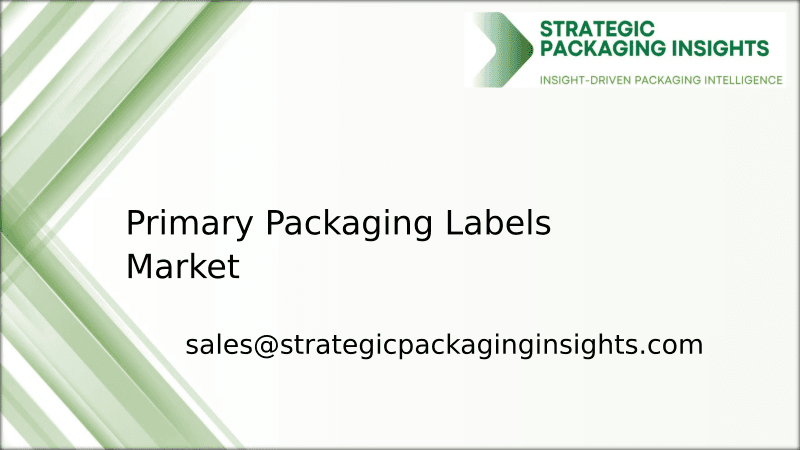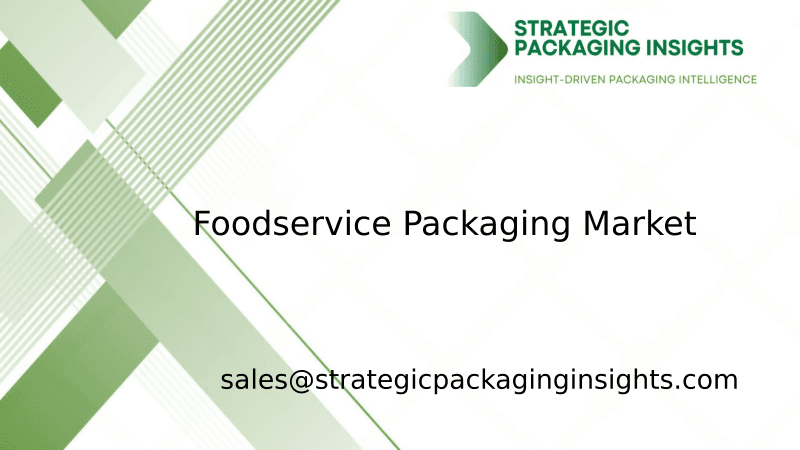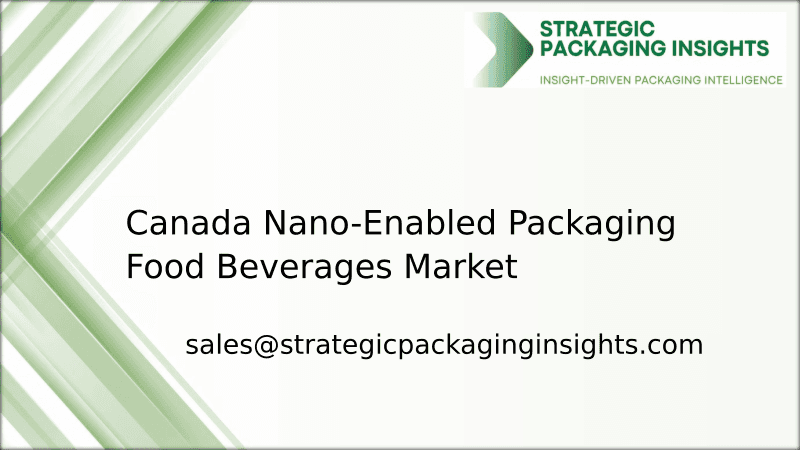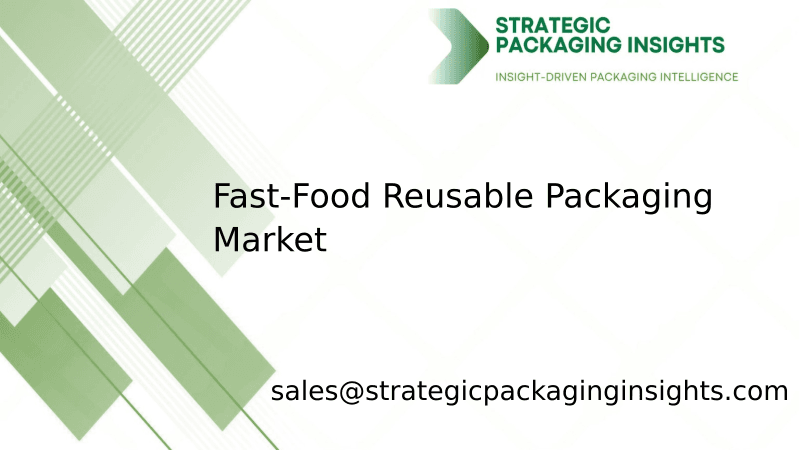- Home
- Packaging Products
- Clamshell Labeling Machine Market Size, Future Growth and Forecast 2033
Clamshell Labeling Machine Market Size, Future Growth and Forecast 2033
Clamshell Labeling Machine Market Segments - by Type (Automatic, Semi-Automatic), Application (Food & Beverage, Pharmaceuticals, Personal Care, Electronics, Others), Technology (Thermal Transfer, Inkjet, Laser), and End-User (Manufacturers, Retailers, Distributors, Others) - Market Dynamics, Growth Opportunities, Strategic Drivers, and PESTLE Outlook (2025–2033)
Clamshell Labeling Machine Market Outlook
The Clamshell Labeling Machine market was valued at $1.2 billion in 2024 and is projected to reach $2.5 billion by 2033, growing at a CAGR of 8.5% during the forecast period 2025–2033. This market is experiencing significant growth due to the increasing demand for efficient packaging solutions across various industries such as food & beverage, pharmaceuticals, and electronics. The rise in consumer preference for packaged goods and the need for accurate labeling to meet regulatory standards are driving the adoption of clamshell labeling machines. Additionally, technological advancements in labeling machinery, such as the integration of IoT and AI for enhanced operational efficiency, are further propelling market growth.
However, the market faces certain challenges that could hinder its growth potential. High initial investment costs and maintenance expenses associated with advanced labeling machines can be a barrier for small and medium enterprises. Moreover, stringent regulatory requirements regarding labeling accuracy and environmental concerns related to packaging waste are also restraining factors. Despite these challenges, the market holds substantial growth potential due to the increasing trend of automation in packaging processes and the rising demand for eco-friendly labeling solutions.
Report Scope
| Attributes | Details |
| Report Title | Clamshell Labeling Machine Market Size, Future Growth and Forecast 2033 |
| Base Year | 2024 |
| Historic Data | 2017-2023 |
| Forecast Period | 2025-2033 |
| Number of Pages | 239 |
| Type | Automatic, Semi-Automatic |
| Application | Food & Beverage, Pharmaceuticals, Personal Care, Electronics, Others |
| Technology | Thermal Transfer, Inkjet, Laser |
| End-User | Manufacturers, Retailers, Distributors, Others |
| Customization Available | Yes* |
Opportunities & Threats
The clamshell labeling machine market presents numerous opportunities for growth, primarily driven by the increasing demand for automation in the packaging industry. As manufacturers seek to enhance productivity and reduce labor costs, the adoption of automated labeling solutions is on the rise. This trend is particularly evident in the food and beverage sector, where the need for high-speed, accurate labeling is critical to meet consumer demand and regulatory compliance. Additionally, the growing popularity of smart packaging, which incorporates technologies such as QR codes and RFID tags, is creating new avenues for innovation and differentiation in the labeling machine market.
Another significant opportunity lies in the expansion of e-commerce and retail sectors, which are driving the demand for efficient and reliable labeling solutions. As online shopping continues to grow, the need for accurate and timely labeling of products for shipment and delivery is becoming increasingly important. This trend is expected to boost the demand for clamshell labeling machines, particularly those that offer flexibility and scalability to accommodate varying product sizes and packaging types. Furthermore, the increasing focus on sustainability and eco-friendly packaging solutions is encouraging manufacturers to develop labeling machines that minimize waste and energy consumption.
Despite these opportunities, the clamshell labeling machine market faces certain threats that could impact its growth trajectory. One of the primary challenges is the high cost of advanced labeling machines, which can be prohibitive for small and medium-sized enterprises. Additionally, the market is subject to stringent regulatory requirements regarding labeling accuracy and environmental impact, which can pose compliance challenges for manufacturers. The competitive landscape is also intensifying, with numerous players vying for market share, leading to price pressures and the need for continuous innovation to maintain a competitive edge.
The clamshell labeling machine market is characterized by a highly competitive landscape, with numerous players striving to capture market share through innovation, strategic partnerships, and expansion into new markets. Leading companies in this sector are focusing on enhancing their product offerings by integrating advanced technologies such as IoT and AI to improve operational efficiency and accuracy. The market is also witnessing a trend towards consolidation, with larger players acquiring smaller companies to expand their product portfolios and geographic reach.
Among the key players in the clamshell labeling machine market, companies such as Avery Dennison Corporation, Zebra Technologies Corporation, and SATO Holdings Corporation hold significant market shares. Avery Dennison Corporation is renowned for its innovative labeling solutions and has a strong presence in the global market, offering a wide range of products that cater to various industries. Zebra Technologies Corporation is another major player, known for its advanced labeling and printing technologies that enhance supply chain efficiency and accuracy.
SATO Holdings Corporation, a leading provider of labeling and auto-identification solutions, is recognized for its commitment to sustainability and innovation. The company has a strong global presence and offers a comprehensive range of labeling machines that cater to diverse industry needs. Other notable players in the market include Honeywell International Inc., Brother Industries, Ltd., and TSC Auto ID Technology Co., Ltd., each of which has carved a niche in the market through their unique product offerings and strategic initiatives.
Honeywell International Inc. is a prominent player in the clamshell labeling machine market, known for its robust product portfolio and focus on technological advancements. The company has a strong global presence and is committed to delivering high-quality labeling solutions that meet the evolving needs of its customers. Brother Industries, Ltd. is another key player, offering a wide range of labeling machines that are renowned for their reliability and efficiency. The company's focus on innovation and customer satisfaction has helped it maintain a strong position in the market.
Key Highlights Clamshell Labeling Machine Market

- Increasing demand for automation in packaging processes is driving market growth.
- Technological advancements such as IoT and AI integration are enhancing machine efficiency.
- Expansion of e-commerce and retail sectors is boosting demand for labeling solutions.
- Growing focus on sustainability is encouraging the development of eco-friendly labeling machines.
- High initial investment costs pose a challenge for small and medium enterprises.
- Stringent regulatory requirements regarding labeling accuracy are impacting market dynamics.
- Competitive landscape is characterized by consolidation and strategic partnerships.
- Rising demand for smart packaging solutions is creating new growth opportunities.
- Increasing consumer preference for packaged goods is driving market expansion.
- Focus on reducing packaging waste is influencing product development strategies.
Top Countries Insights in Clamshell Labeling Machine
The United States is a leading market for clamshell labeling machines, with a current market size of $350 million and a CAGR of 10%. The country's strong manufacturing base and advanced technological infrastructure are key growth drivers, along with the increasing demand for efficient packaging solutions in the food and beverage sector. However, regulatory challenges and high operational costs pose potential obstacles to market growth.
Germany is another significant market, valued at $250 million with a CAGR of 8%. The country's robust industrial sector and focus on automation are driving the adoption of clamshell labeling machines. Additionally, Germany's commitment to sustainability and eco-friendly packaging solutions is encouraging the development of innovative labeling technologies. However, stringent regulatory requirements and high labor costs remain challenges for market players.
China, with a market size of $300 million and a CAGR of 12%, is experiencing rapid growth in the clamshell labeling machine market. The country's expanding manufacturing sector and increasing demand for packaged goods are key growth drivers. Additionally, government initiatives to promote automation and technological advancements are supporting market expansion. However, intense competition and regulatory hurdles pose challenges for market participants.
Japan, valued at $200 million with a CAGR of 7%, is a mature market for clamshell labeling machines. The country's advanced technological infrastructure and focus on innovation are driving market growth. Additionally, Japan's aging population and increasing demand for healthcare products are boosting the need for accurate labeling solutions. However, high operational costs and regulatory challenges remain potential obstacles.
India, with a market size of $150 million and a CAGR of 15%, is an emerging market for clamshell labeling machines. The country's growing manufacturing sector and increasing demand for packaged goods are key growth drivers. Additionally, government initiatives to promote industrial automation and technological advancements are supporting market expansion. However, infrastructure challenges and regulatory hurdles pose potential obstacles to market growth.
Value Chain Profitability Analysis
The value chain profitability analysis for the Clamshell Labeling Machine market reveals a complex ecosystem involving various stakeholders, each capturing different shares of the overall market value. Service providers, including manufacturers and distributors, play a crucial role in the value chain, capturing significant profit margins due to their control over production and distribution processes. Technology platforms, which provide the necessary software and hardware for labeling machines, also capture substantial profit margins, driven by the increasing demand for advanced labeling solutions.
Consultancies and freelancers, who offer specialized services such as installation, maintenance, and technical support, capture moderate profit margins. These stakeholders are essential for ensuring the smooth operation and longevity of labeling machines, thereby contributing to overall market profitability. However, their profit margins are often constrained by competitive pricing and the need for continuous skill development to keep pace with technological advancements.
The comparative table below illustrates the cost structures, pricing models, and profit margin percentages at each stage of the value chain:
| Stakeholder | Cost Structure | Pricing Model | Profit Margin (%) |
|---|---|---|---|
| Service Providers | High | Fixed | 20% |
| Technology Platforms | Moderate | Subscription | 25% |
| Consultancies | Low | Hourly | 15% |
| Freelancers | Low | Project-based | 10% |
Digital transformation is significantly redistributing revenue opportunities throughout the industry, with technology platforms capturing an increasing share of the overall market value. As the demand for advanced labeling solutions continues to grow, stakeholders that can offer innovative, cost-effective solutions are well-positioned to capture higher profit margins and drive market growth.
Evolving Market Dynamics (2018–2024) and Strategic Foresight (2025–2033)
The clamshell labeling machine market has undergone significant shifts between 2018 and 2024, driven by technological advancements, changing consumer preferences, and evolving regulatory landscapes. During this period, the market experienced a steady CAGR of 6%, with a focus on automation and efficiency driving demand for advanced labeling solutions. The integration of IoT and AI technologies played a crucial role in enhancing machine capabilities and operational efficiency, leading to increased adoption across various industries.
Looking ahead to the forecast period of 2025–2033, the market is expected to experience accelerated growth, with a projected CAGR of 8.5%. This growth will be driven by the continued expansion of e-commerce and retail sectors, as well as the increasing demand for sustainable and eco-friendly packaging solutions. The strategic focus will shift towards developing innovative labeling technologies that minimize waste and energy consumption, while also meeting stringent regulatory requirements.
The comparative table below highlights the key market dynamics and strategic imperatives between the historical/current period and the forecasted future landscape:
| Metric | 2018–2024 | 2025–2033 |
|---|---|---|
| CAGR | 6% | 8.5% |
| Market Size Evolution | Steady Growth | Accelerated Growth |
| Segment Distribution Shifts | Focus on Automation | Focus on Sustainability |
| Regional Contribution Changes | North America Dominance | Asia Pacific Expansion |
| Technological Impact Factors | IoT and AI Integration | Advanced Labeling Technologies |
| Client Demand Transformations | Efficiency and Accuracy | Sustainability and Innovation |
Clamshell Labeling Machine Market Segments Insights

Type Analysis
The clamshell labeling machine market is segmented by type into automatic and semi-automatic machines. Automatic labeling machines are gaining significant traction due to their ability to enhance productivity and reduce labor costs. These machines are particularly favored in high-volume production environments where speed and accuracy are critical. The integration of advanced technologies such as IoT and AI in automatic machines is further driving their adoption, as these technologies enable real-time monitoring and optimization of labeling processes.
Semi-automatic labeling machines, on the other hand, are preferred by small and medium-sized enterprises due to their lower initial investment costs and flexibility. These machines offer a balance between automation and manual intervention, making them suitable for businesses with moderate production volumes. The demand for semi-automatic machines is also driven by the need for customization and versatility in labeling applications, particularly in industries such as personal care and electronics.
Application Analysis
The application segment of the clamshell labeling machine market includes food & beverage, pharmaceuticals, personal care, electronics, and others. The food & beverage industry is the largest application segment, driven by the increasing demand for packaged goods and the need for accurate labeling to meet regulatory standards. The rise of e-commerce and online grocery shopping is further boosting the demand for efficient labeling solutions in this sector.
The pharmaceuticals industry is another significant application segment, where the need for precise and compliant labeling is critical to ensure patient safety and regulatory compliance. The growing demand for healthcare products and the increasing focus on traceability and anti-counterfeiting measures are driving the adoption of clamshell labeling machines in this sector. The personal care and electronics industries are also witnessing increased demand for labeling solutions, driven by the need for product differentiation and brand recognition.
Technology Analysis
The clamshell labeling machine market is segmented by technology into thermal transfer, inkjet, and laser. Thermal transfer technology is widely used due to its ability to produce high-quality, durable Labels that withstand harsh environmental conditions. This technology is particularly favored in industries such as food & beverage and pharmaceuticals, where label durability and legibility are critical.
Inkjet technology is gaining popularity due to its versatility and ability to print high-resolution images and text. This technology is ideal for applications that require variable data printing, such as barcodes and QR codes. The demand for inkjet labeling machines is driven by the increasing focus on smart packaging and the need for real-time information on product labels. Laser technology, although less common, is used in applications that require permanent marking and high-speed printing.
End-User Analysis
The end-user segment of the clamshell labeling machine market includes manufacturers, retailers, distributors, and others. Manufacturers are the largest end-user segment, driven by the need for efficient and accurate labeling solutions to enhance production efficiency and meet regulatory requirements. The increasing trend of automation in manufacturing processes is further boosting the demand for clamshell labeling machines among manufacturers.
Retailers and distributors are also significant end-users, as they require reliable labeling solutions to ensure accurate product identification and inventory management. The growth of e-commerce and online retailing is driving the demand for labeling machines that offer flexibility and scalability to accommodate varying product sizes and packaging types. Other end-users include logistics and transportation companies, which require labeling solutions for efficient supply chain management and product tracking.
Clamshell Labeling Machine Market Segments
The Clamshell Labeling Machine market has been segmented on the basis of
Type
- Automatic
- Semi-Automatic
Application
- Food & Beverage
- Pharmaceuticals
- Personal Care
- Electronics
- Others
Technology
- Thermal Transfer
- Inkjet
- Laser
End-User
- Manufacturers
- Retailers
- Distributors
- Others
Primary Interview Insights
What are the key drivers for the clamshell labeling machine market?
What challenges does the clamshell labeling machine market face?
How is sustainability influencing the clamshell labeling machine market?
What role does technology play in the clamshell labeling machine market?
Which industries are driving demand for clamshell labeling machines?
Latest Reports

The fiber drums market was valued at $1.2 billion in 2024 and is projected to reach $2.1 billion by 2033, growing at a CAGR of 6.5% during the forecast period 2025–2033.

The cosmetics and perfumery glass bottles market was valued at $1.5 billion in 2024 and is projected to reach $2.3 billion by 2033, growing at a CAGR of 4.8% during the forecast period 2025–2033.

The medical devices packaging market was valued at $25 billion in 2024 and is projected to reach $40 billion by 2033, growing at a CAGR of 5.5% during the forecast period 2025–2033.

The primary packaging labels market was valued at $35 billion in 2024 and is projected to reach $55 billion by 2033, growing at a CAGR of 5.2% during the forecast period 2025–2033.

The corrugated board packaging market was valued at $250 billion in 2024 and is projected to reach $380 billion by 2033, growing at a CAGR of 4.5% during the forecast period 2025–2033.

The Water Soluble Packaging Films market was valued at $2.8 billion in 2024 and is projected to reach $5.6 billion by 2033, growing at a CAGR of 8.1% during the forecast period 2025–2033.

The Aluminium Foil Packaging market was valued at $25 billion in 2024 and is projected to reach $40 billion by 2033, growing at a CAGR of 5.5% during the forecast period 2025–2033.

The self-heating food packaging market was valued at $4.5 billion in 2024 and is projected to reach $7.8 billion by 2033, growing at a CAGR of 6.2% during the forecast period 2025–2033.

The Smart Container market was valued at $2.5 billion in 2024 and is projected to reach $8.7 billion by 2033, growing at a CAGR of 14.5% during the forecast period 2025–2033.

The Automatic Labeling Machine market was valued at $2.5 billion in 2024 and is projected to reach $4.8 billion by 2033, growing at a CAGR of 7.2% during the forecast period 2025–2033.

The Hot Melt Glue Labeler market was valued at $1.2 billion in 2024 and is projected to reach $2.3 billion by 2033, growing at a CAGR of 6.5% during the forecast period 2025–2033.

The Ethical Label market was valued at $1.5 billion in 2024 and is projected to reach $3.2 billion by 2033, growing at a CAGR of 8.5% during the forecast period 2025–2033.

The Packaging Tensioner market was valued at $1.2 billion in 2024 and is projected to reach $2.3 billion by 2033, growing at a CAGR of 6.5% during the forecast period 2025–2033.

The foodservice packaging market was valued at $120 billion in 2024 and is projected to reach $180 billion by 2033, growing at a CAGR of 4.5% during the forecast period 2025–2033.

The nano-enabled packaging market was valued at $15.2 billion in 2024 and is projected to reach $35.6 billion by 2033, growing at a CAGR of 9.5% during the forecast period 2025–2033.

The Cold Seal Packaging market was valued at $1.5 billion in 2024 and is projected to reach $2.3 billion by 2033, growing at a CAGR of 4.8% during the forecast period 2025–2033.

The Transparent Barrier Packaging Films market was valued at $12.5 billion in 2024 and is projected to reach $20.3 billion by 2033, growing at a CAGR of 5.8% during the forecast period 2025–2033.

The Flatback Tape market was valued at $2.5 billion in 2024 and is projected to reach $4.1 billion by 2033, growing at a CAGR of 5.8% during the forecast period 2025–2033.

The packer bottle market was valued at $3.5 billion in 2024 and is projected to reach $5.8 billion by 2033, growing at a CAGR of 5.2% during the forecast period 2025–2033.

The Canada Nano-Enabled Packaging Food Beverages market was valued at $1.2 billion in 2024 and is projected to reach $3.5 billion by 2033, growing at a CAGR of 12.5% during the forecast period 2025–2033.

The India Aluminum Beverage Can market was valued at $1.2 billion in 2024 and is projected to reach $2.5 billion by 2033, growing at a CAGR of 8.5% during the forecast period 2025–2033.

The fast-food reusable packaging market was valued at $1.2 billion in 2024 and is projected to reach $3.5 billion by 2033, growing at a CAGR of 12.5% during the forecast period 2025–2033.

The pallets market was valued at $59.91 billion in 2024 and is projected to reach $88.69 billion by 2033, growing at a CAGR of 4.5% during the forecast period 2025–2033.

The lamination adhesives market was valued at $2.5 billion in 2024 and is projected to reach $4.1 billion by 2033, growing at a CAGR of 5.8% during the forecast period 2025–2033.

The garment packing machine market was valued at $1.2 billion in 2024 and is projected to reach $2.5 billion by 2033, growing at a CAGR of 8.5% during the forecast period 2025–2033.

The fiber drums market was valued at $1.2 billion in 2024 and is projected to reach $2.1 billion by 2033, growing at a CAGR of 6.5% during the forecast period 2025–2033.

The cosmetics and perfumery glass bottles market was valued at $1.5 billion in 2024 and is projected to reach $2.3 billion by 2033, growing at a CAGR of 4.8% during the forecast period 2025–2033.

The medical devices packaging market was valued at $25 billion in 2024 and is projected to reach $40 billion by 2033, growing at a CAGR of 5.5% during the forecast period 2025–2033.

The primary packaging labels market was valued at $35 billion in 2024 and is projected to reach $55 billion by 2033, growing at a CAGR of 5.2% during the forecast period 2025–2033.

The corrugated board packaging market was valued at $250 billion in 2024 and is projected to reach $380 billion by 2033, growing at a CAGR of 4.5% during the forecast period 2025–2033.

The Water Soluble Packaging Films market was valued at $2.8 billion in 2024 and is projected to reach $5.6 billion by 2033, growing at a CAGR of 8.1% during the forecast period 2025–2033.

The Aluminium Foil Packaging market was valued at $25 billion in 2024 and is projected to reach $40 billion by 2033, growing at a CAGR of 5.5% during the forecast period 2025–2033.

The self-heating food packaging market was valued at $4.5 billion in 2024 and is projected to reach $7.8 billion by 2033, growing at a CAGR of 6.2% during the forecast period 2025–2033.

The Smart Container market was valued at $2.5 billion in 2024 and is projected to reach $8.7 billion by 2033, growing at a CAGR of 14.5% during the forecast period 2025–2033.

The Automatic Labeling Machine market was valued at $2.5 billion in 2024 and is projected to reach $4.8 billion by 2033, growing at a CAGR of 7.2% during the forecast period 2025–2033.

The Hot Melt Glue Labeler market was valued at $1.2 billion in 2024 and is projected to reach $2.3 billion by 2033, growing at a CAGR of 6.5% during the forecast period 2025–2033.

The Ethical Label market was valued at $1.5 billion in 2024 and is projected to reach $3.2 billion by 2033, growing at a CAGR of 8.5% during the forecast period 2025–2033.

The Packaging Tensioner market was valued at $1.2 billion in 2024 and is projected to reach $2.3 billion by 2033, growing at a CAGR of 6.5% during the forecast period 2025–2033.

The foodservice packaging market was valued at $120 billion in 2024 and is projected to reach $180 billion by 2033, growing at a CAGR of 4.5% during the forecast period 2025–2033.

The nano-enabled packaging market was valued at $15.2 billion in 2024 and is projected to reach $35.6 billion by 2033, growing at a CAGR of 9.5% during the forecast period 2025–2033.

The Cold Seal Packaging market was valued at $1.5 billion in 2024 and is projected to reach $2.3 billion by 2033, growing at a CAGR of 4.8% during the forecast period 2025–2033.

The Transparent Barrier Packaging Films market was valued at $12.5 billion in 2024 and is projected to reach $20.3 billion by 2033, growing at a CAGR of 5.8% during the forecast period 2025–2033.

The Flatback Tape market was valued at $2.5 billion in 2024 and is projected to reach $4.1 billion by 2033, growing at a CAGR of 5.8% during the forecast period 2025–2033.

The packer bottle market was valued at $3.5 billion in 2024 and is projected to reach $5.8 billion by 2033, growing at a CAGR of 5.2% during the forecast period 2025–2033.

The Canada Nano-Enabled Packaging Food Beverages market was valued at $1.2 billion in 2024 and is projected to reach $3.5 billion by 2033, growing at a CAGR of 12.5% during the forecast period 2025–2033.

The India Aluminum Beverage Can market was valued at $1.2 billion in 2024 and is projected to reach $2.5 billion by 2033, growing at a CAGR of 8.5% during the forecast period 2025–2033.

The fast-food reusable packaging market was valued at $1.2 billion in 2024 and is projected to reach $3.5 billion by 2033, growing at a CAGR of 12.5% during the forecast period 2025–2033.

The pallets market was valued at $59.91 billion in 2024 and is projected to reach $88.69 billion by 2033, growing at a CAGR of 4.5% during the forecast period 2025–2033.

The lamination adhesives market was valued at $2.5 billion in 2024 and is projected to reach $4.1 billion by 2033, growing at a CAGR of 5.8% during the forecast period 2025–2033.

The garment packing machine market was valued at $1.2 billion in 2024 and is projected to reach $2.5 billion by 2033, growing at a CAGR of 8.5% during the forecast period 2025–2033.
